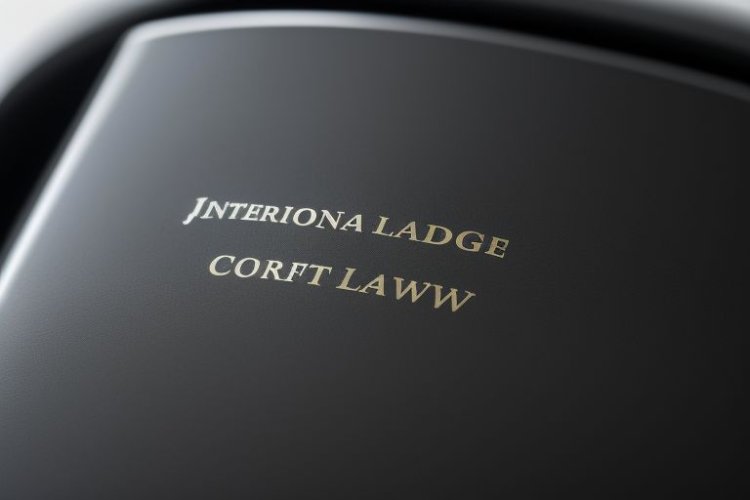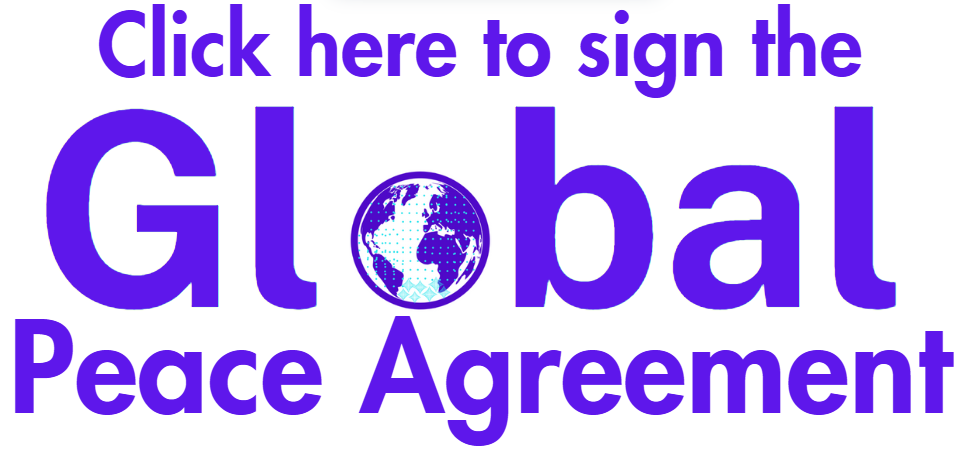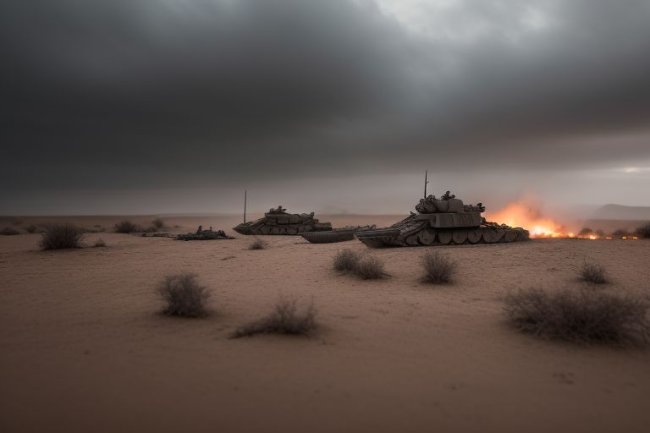International Criminal Court (ICC) And Its Impact On Accountability
The International Criminal Court (ICC) has emerged as a critical institution in international law, striving to promote accountability and equity between conflicting states. Established by the Rome Statute in 1998 and commencing its operations in 2002, the ICC represents a monumental step towards ensuring that perpetrators of heinous crimes are held accountable, regardless of their position or status.

The ICC's Role in Accountability
The primary mandate of the ICC is to prosecute individuals responsible for genocide, war crimes, crimes against humanity, and the crime of aggression. By focusing on individuals rather than states, the ICC addresses the issue of accountability at a personal level, holding individuals accountable for their actions irrespective of their official positions or affiliations. This departure from the traditional focus on state responsibility allows the ICC to tackle impunity and deliver justice to victims who have often suffered immensely during conflicts.
One of the notable features of the ICC's accountability mechanism is its complementarity principle. According to this principle, the ICC serves as a court of last resort, intervening only when national courts are unwilling or unable to prosecute individuals for the aforementioned crimes. This approach encourages national jurisdictions to take responsibility for their criminal proceedings and promotes the idea that states are primarily responsible for ensuring accountability within their territories.
Impact on Equity between Conflicting States
The ICC's pursuit of accountability has significant implications for equity between conflicting states. When one party to a conflict commits grave crimes, the ICC's intervention helps level the playing field by providing justice for victims and deterring future abuses. This equitable approach sends a powerful message that no one is above the law and that all parties involved in conflicts must be held accountable for their actions.
Furthermore, the ICC's impartiality and independence from state influence contribute to promoting equity. Unlike ad hoc tribunals established for specific conflicts, the ICC operates as a permanent institution, ensuring consistent application of international law regardless of the nature of the conflict or the identity of the parties involved. This consistency in applying justice fosters a sense of fairness and equity, reinforcing the ICC's role as an objective arbiter of international crimes.
The ICC's Impact on International Justice
The establishment of the ICC represents a pivotal advancement in the pursuit of global justice. Ad hoc tribunals have also been formed prior to its formation to address past crimes, but with restrictions on their jurisdiction and time frames, such as the International Criminal Tribunal for the former Yugoslavia (ICTY) and the International Criminal Tribunal for Rwanda (ICTR).
In contrast, the ICC's permanent nature enables it to address crimes not only in ongoing conflicts but also those committed in the future. This forward-looking approach sends a clear and resolute message that accountability for international crimes remains an ongoing commitment, regardless of evolving conflicts and challenges. As the ICC continues to hear cases and render judgments, it reinforces the principle that justice should be unbounded by time or circumstances.
Moreover, the ICC's focus on complementarity has encouraged states to strengthen their legal systems and enhance their capacity to prosecute international crimes domestically. This capacity-building aspect of the ICC's work contributes to the broader goal of promoting the rule of law and enhancing accountability at the national level, fostering a culture of justice and human rights.
Challenges and Criticisms
Despite its significant impact on accountability and equity, the ICC faces various challenges and criticisms that impact its effectiveness:
1. Limited Jurisdiction: The ICC's jurisdiction is limited to crimes committed on the territory of states that are parties to the Rome Statute or by nationals of those states. As a result, the ICC cannot investigate crimes committed by individuals from non-member states, limiting its reach in certain conflicts.
2. Political Influence: The ICC's work can be subject to political influence, especially when powerful states are involved in conflicts. The potential for political pressure on the court or non-cooperation from states can hinder its effectiveness in pursuing accountability.
3. Resource Constraints: The ICC's limited resources and caseload can impact its ability to handle all cases effectively and efficiently. Given the court's workload, prioritizing cases and ensuring a timely and fair trial process can be challenging.
4. State Cooperation: The ICC's success heavily relies on states' cooperation in executing arrest warrants and providing access to evidence and witnesses. Non-cooperation from states can hinder the court's ability to carry out its mandate effectively.
5. Perceived Bias: Some critics argue that the ICC disproportionately targets African countries, leading to perceptions of bias in its operations. This criticism has raised questions about the court's universality and handling of cases involving powerful states.
The International Criminal Court has made significant strides in promoting accountability and equity between conflicting states. Its role in prosecuting individuals for grave international crimes and its impartiality in applying justice contribute to its impact on international justice. By fostering a culture of accountability and deterring future atrocities, the ICC serves as a beacon of hope for victims of heinous crimes.
However, the court also faces challenges that must be addressed to enhance its effectiveness. Ensuring broad and fair access to justice, overcoming political influence, and addressing resource constraints are critical to strengthening the ICC's role as a global champion of accountability and equity. As the world grapples with complex conflicts and atrocities, the ICC's continued evolution and adaptability will play a pivotal role in shaping a more just and equitable world where international crimes are met with unwavering resolve and where victims find solace in pursuing justice.
Legal Challenges In Prosecuting War Crimes And Crimes Against Humanity
In the face of horrific atrocities, it is a difficult and hard duty to defend the values of justice and accountability via the prosecution of war crimes and crimes against humanity.
One of the primary legal challenges in prosecuting war crimes and crimes against humanity is the lack of universal jurisdiction. Jurisdictional issues arise when crimes are committed across borders, and the alleged perpetrators may be outside the territory of the prosecuting state. In such cases, achieving justice becomes complicated, and this challenge can hinder the ability of national courts to prosecute offenders, necessitating the involvement of international tribunals or courts with universal jurisdiction.
Criminals who have committed war crimes and crimes against humanity may be granted immunity or amnesty, particularly if they are in positions of authority within the government. The pursuit of justice may be hampered and a culture of impunity may be maintained by granting immunity or amnesty.
Many states grant immunity to high-ranking officials, arguing that it is essential for peace and reconciliation. Balancing the need for accountability with the imperative of post-conflict stability poses a significant challenge to the legal process.
Gathering admissible and credible evidence is crucial for successful prosecutions. However, evidence collection can be extremely challenging in conflict zones due to security risks and limited access to crime scenes and witnesses. The destruction or manipulation of evidence by the perpetrators further complicates the process. Overcoming these obstacles requires establishing secure mechanisms for evidence collection and preservation and protecting witnesses and victims.
Witness protection is critical to prosecuting war crimes and crimes against humanity. Witnesses often fear retaliation and may be unwilling to testify, making it challenging to build a strong case. Protecting the integrity of the justice system and encouraging victims to come forward and provide their testimony requires witness protection and collaboration. To deal with this issue, international courts and tribunals frequently implement stringent protection measures.
Establishing command responsibility and the chain of command can be complex, especially in cases where crimes are committed in the context of armed conflicts involving multiple actors. Holding commanders accountable for crimes committed by their subordinates requires establishing a direct link between the superior's orders and the commission of the crimes. Overcoming this challenge involves thorough investigations and access to credible evidence of superior responsibility.
Political interference can significantly impact the prosecution of war crimes and crimes against humanity. Powerful states may exert pressure on national authorities or international bodies to impede or halt investigations and prosecutions involving their nationals or allies. Additionally, diplomatic immunity can shield high-ranking officials from prosecution, making it difficult to hold them accountable for their actions. Addressing these challenges requires maintaining the independence and impartiality of judicial processes and ensuring that political considerations do not hinder the pursuit of justice.
The statute of limitations can be a major barrier to the prosecution of war crimes and crimes against humanity, particularly when a lot of time has passed since the crimes were committed.
In many jurisdictions, the statute of limitations can prevent prosecutions after a certain period, limiting accountability for past atrocities. Addressing this challenge may involve extending or abolishing statutes of limitations for certain heinous crimes.
Jurisdictional conflicts may arise when multiple states or international tribunals claim jurisdiction over the same crimes or perpetrators. This can lead to legal complexities and delays in the prosecution process. Establishing clear guidelines for jurisdiction and coordination between different jurisdictions can help mitigate this challenge.
The extradition of suspects to face trial in the prosecuting state or international tribunal can be challenging, especially when suspects are located in countries that lack extradition treaties or have conflicting legal systems. Enforcement of arrest warrants can also be problematic, particularly when suspects are in territories beyond the reach of the prosecuting authorities. International cooperation and diplomatic efforts are essential to address these challenges effectively.
Securing the political will and sufficient resources for war crimes and crimes against humanity prosecutions can be a daunting task. Legal proceedings are often expensive and time-consuming, requiring substantial financial and logistical support. A lack of political will to prioritize justice and allocate necessary resources can hamper the success of prosecutions.
The values of justice, accountability, and human rights must be upheld through prosecuting those who commit war crimes and crimes against humanity.
However, numerous legal challenges must be navigated to ensure successful prosecutions. Overcoming these obstacles requires international cooperation, political commitment, and the establishment of robust mechanisms for evidence collection, witness protection, and coordination between different jurisdictions. By addressing these challenges head-on, the international community can strengthen its resolve to combat impunity and create a world where justice prevails, victims find solace, and perpetrators are held accountable for their actions.




















